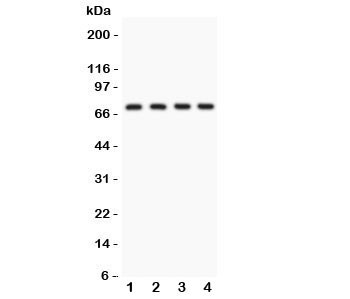Cookie preferences
This website uses cookies, which are necessary for the technical operation of the website and are always set. Other cookies, which increase the comfort when using this website, are used for direct advertising or to facilitate interaction with other websites and social networks, are only set with your consent.
Configuration
Technically required
These cookies are necessary for the basic functions of the shop.
"Allow all cookies" cookie
"Decline all cookies" cookie
CSRF token
Cookie preferences
Currency change
Customer-specific caching
FACT-Finder tracking
Individual prices
Selected shop
Session
Comfort functions
These cookies are used to make the shopping experience even more appealing, for example for the recognition of the visitor.
Note
Show the facebook fanpage in the right blod sidebar
Statistics & Tracking
Affiliate program
Conversion and usertracking via Google Tag Manager
Track device being used
| Item number | Size | Datasheet | Manual | SDS | Delivery time | Quantity | Price |
|---|---|---|---|---|---|---|---|
| NSJ-R31640 | 100 µg | - | - |
3 - 10 business days* |
772.00€
|
If you have any questions, please use our Contact Form.
You can also order by e-mail: info@biomol.com
Larger quantity required? Request bulk
You can also order by e-mail: info@biomol.com
Larger quantity required? Request bulk
0.5mg/ml if reconstituted with 0.2ml sterile DI water. Calcium-activated potassium channel... more
Product information "Anti-BK channel (KCNMA1)"
0.5mg/ml if reconstituted with 0.2ml sterile DI water. Calcium-activated potassium channel subunit alpha-1 also known as KCa1.1, BK channel and Maxi K, is a voltage gated potassium channel encoded by the KCNMA1 gene and characterized by its large conductance of potassium ions (K+) through cell membranes. This gene is located on 10q22.3. BK channels are activated (opened) by changes in membrane electrical potential and/or by increases in concentration of intracellular calcium ion (Ca2+). They are essential for the regulation of several key physiological processes including smooth muscle tone and neuronal excitability. BK channels also contribute to the behavioral effects of ethanol in the worm C. elegans under high concentrations (> 100 mM, or approximately 0.50% BAC). It remains to be determined if they contribute to intoxication in humans. Protein function: Potassium channel activated by both membrane depolarization or increase in cytosolic Ca(2+) that mediates export of K(+) (PubMed:29330545, PubMed:31152168). It is also activated by the concentration of cytosolic Mg(2+). Its activation dampens the excitatory events that elevate the cytosolic Ca(2+) concentration and/or depolarize the cell membrane. It therefore contributes to repolarization of the membrane potential. Plays a key role in controlling excitability in a number of systems, such as regulation of the contraction of smooth muscle, the tuning of hair cells in the cochlea, regulation of transmitter release, and innate immunity. In smooth muscles, its activation by high level of Ca(2+), caused by ryanodine receptors in the sarcoplasmic reticulum, regulates the membrane potential. In cochlea cells, its number and kinetic properties partly determine the characteristic frequency of each hair cell and thereby helps to establish a tonotopic map. Kinetics of KCNMA1 channels are determined by alternative splicing, phosphorylation status and its combination with modulating beta subunits. Highly sensitive to both iberiotoxin (IbTx) and charybdotoxin (CTX). [The UniProt Consortium]
| Keywords: | Anti-hSlo, Anti-Slo1, Anti-KCNMA, Anti-MaxiK, Anti-KCa1.1, Anti-Slo-alpha, Anti-BKCA alpha, Anti-BK channel, Anti-K(VCA)alpha, Anti-Slo homolog, Anti-Maxi K channel, Anti-Slowpoke homolog, Anti-Calcium-activated potassium channel subunit alpha-1, BK chann |
| Supplier: | NSJ Bioreagents |
| Supplier-Nr: | R31640 |
Properties
| Application: | WB, IHC (paraffin) |
| Antibody Type: | Polyclonal |
| Conjugate: | No |
| Host: | Rabbit |
| Species reactivity: | human, mouse, rat |
| Immunogen: | Human partial recombinant protein (AA 124-467 of KCNMA1) |
| Format: | Purified |
Database Information
| KEGG ID : | K04936 | Matching products |
| UniProt ID : | Q12791 | Matching products |
| Gene ID : | GeneID 3778 | Matching products |
Handling & Safety
| Storage: | +4°C |
| Shipping: | +4°C (International: +4°C) |
Caution
Our products are for laboratory research use only: Not for administration to humans!
Our products are for laboratory research use only: Not for administration to humans!
Information about the product reference will follow.
more
You will get a certificate here
Viewed









